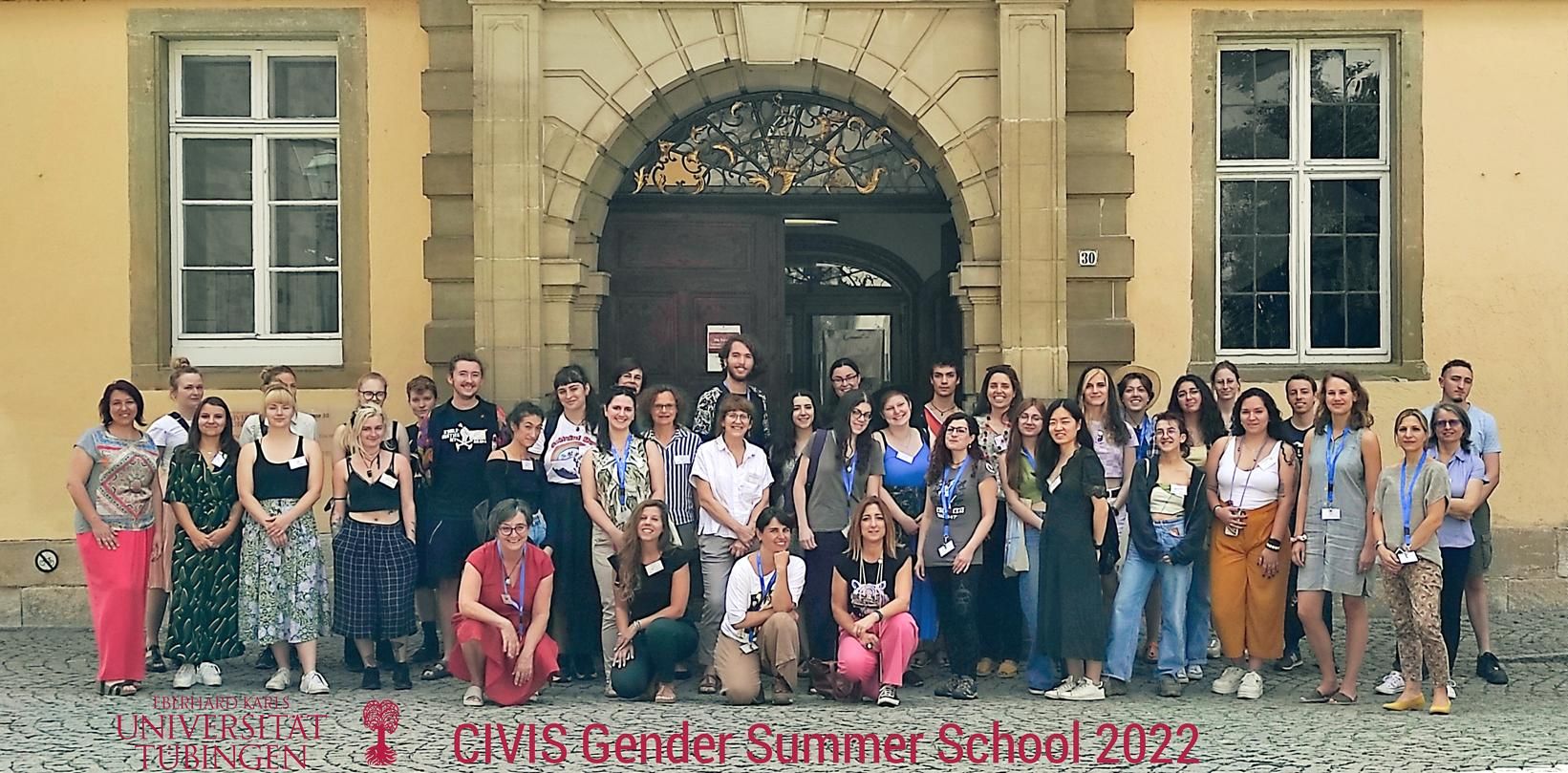Aktuelles
25.07.2022
CIVIS Summer School “Interdisciplinary approaches to Gender Archaeology”
A European educative framework to Gender Archaeology
CIVIS is a European Civic University alliance involving altogether ten leading research higher education institutions over Europe including the University of Tübingen. Through academic members and researchers, the alliance aims to promote European values. In the framework of the focus area “Society, cultures and heritage” and the support of CIVIS Short Term Mobility, the first edition of the summer school entitled “Interdisciplinary approaches to Gender Archaeology” took place in Tübingen from 4th to 10th July. Organized by Dr. Marta Díaz-Zorita Bonilla, PD Dr. Dorothée Drucker and Dr. Sibylle Wolf, the event welcomed 32 students and 27 instructors from Austria, Belgium, France, Germany, Italy, Spain, Sweden, and Estonia. The CIVIS universities involved in this initiative were Aix-Marseille Université, Universidad Autónoma de Madrid, Stockholm University, Sapienza Universitá di Roma and Université Libre de Bruxelles.
Interdisciplinary approaches to Gender Archaeology
The multidisciplinary program included lectures and practical seminars on the topics of the international perspectives in Gender Archaeology, bioarcheological studies on pregnancy, motherhood and infancy, biomolecular approaches to subsistence practices, archaeological researches on art and funerary practices, and debates on Gender Archaeology in education and heritage. Based on case studies from different formats, the goal of this summer school was to consider not only several topics involving women roles and impact in the past (child care, funerary practices, art), but also how different fields of research that have evolved to take into account the question of gender (e.g. genetic analysis to determine the sex of human remains, proteomics to investigate weaning practices), and how the results are conveyed in museum exhibitions, public archaeology and media reports.
Including women and children in the understanding of past societies
The lecture and seminars offered the opportunity to discuss about ways to better convey the growing set of evidence of the material culture of women and children in past societies using updated museography and media formats, both for educated and large audience. A particular attention was given to the topic of giving access to non-stereotyped educational material treating archaeological topics, especially to young adults and children.
The need to develop an inclusive approach to the description of art artefacts related to female depictions was the purpose of several presentations and a practical exercise during which the students analysed and commented exhibition and book supports. The lectures on biomolecular studies revealed the growing interest in reconstructing the bioarchaeology of care. Birth, weaning, childhood and pregnancy are important phases of the life of individuals for which biometric data whose archaeological contextualization give us invaluable insight into the status of women in the past.
Promoting gender inclusion in the present and future
If the summer school highlighted the contribution to women in past societies, the gender inequality in education and academics was also considered a key issue. Promoting equal consideration of all groups in the study of the past has been a recent consideration that reflects the evolution of female empowerment in modern societies. The public reactions to innovative exhibitions on gender construction over time revealed where our societal views stand about such topic. Questioning our stereotypes on gender roles in the past is opening new perspectives in the debates of role models in the future.
In summary, the celebration of the summer school related to Gender Archaeology offered new insights and a wide range of possibilities of research including innovative aspects to conduct further analysis within the framework of an open and democratic forum. We hope that future editions of the CIVIS European alliance partners will contribute to promote the values of Gender Studies to make universities inclusive and open to diversity institutions of higher education.
Dr. Marta Díaz-Zorita Bonilla, PD Dr. Dorothée Drucker and Dr. Sibylle Wolf

